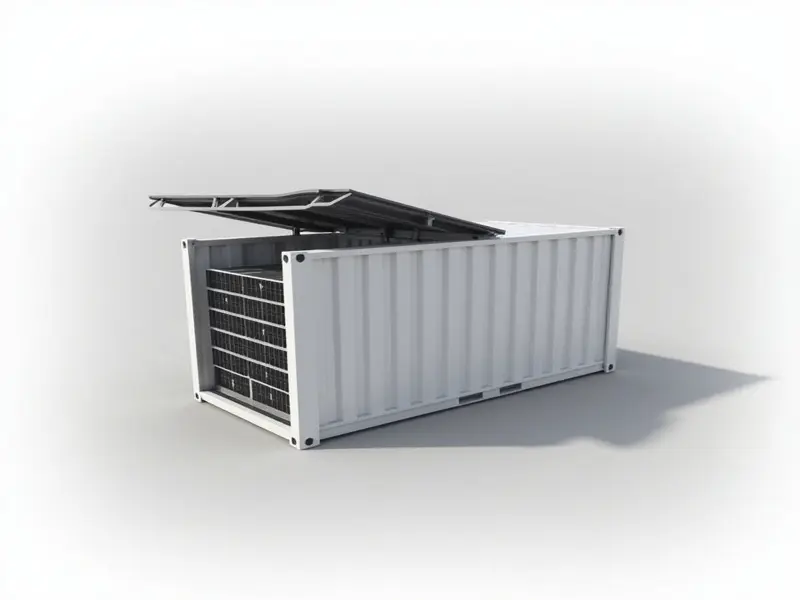As the world is shifting towards green power, Solar Photovoltaic Container Systems are the green and adaptable solution to decentralized power generation. The systems include solar panels, inverters, and storage in shipping containers, transported in high-speed ships over vast distances, a dependable space-constrained and scalable power system. This article presents an overview of the trend in Solar Container Technology, way forward, industry challenges, and drivers of the growing industry.
Advancements in Solar Container Technology
Solar Container Technology has witnessed tremendous technological advancements over the past several years, and their use and functions grew exponentially.
Portable and Modular Designs
Technology has enabled the development of light, portable photovoltaic (PV) systems that are extremely simple to install. For example, there is an Austrian firm that recently launched a 240-module solar panel on a foldable pedestal, simple to install and remove. The technology is simple to transport and install and thus is ideally suited to rural deployment and disaster relief operations.
Better Energy Storage Solutions
Intergrid improved the conventional battery technology and long-life high capacity new solar container batteries. It provides constant release of energy if there is minimal sun contribution and hence makes off-grid electricity systems more dependable.
Smart Energy Management Systems
Interoperability with smart energy management systems allows it to monitor and optimize the consumption of energy in real time. They are even able to forecast energy demand, optimize release and storage, and even predict maintenance needs ahead of time, thereby enhancing efficiency overall.
Future Expectations in the Years to Come for Photovoltaic Container Systems
The future of Photovoltaic Container Systems is bright, fueled by completely ginormous sound reasons:
- Technological Upgradation:Technological upgradation from efficiency to enhance the efficiency of solar panels, power management system and storage system will increase will assist in adding output at low cost to decrease prices of containers.
- International Energy Revolution: With all governments across the globe planning to reduce carbon emission, solar containers have an increased scalability plan to do more than renewable energy can for energy need particularly in pipe-less areas.
- Emerging Markets:Increasing energy needs for the emerging markets of the world offer unparalleled opportunities for the application of solar containers in addressing electrification and sustainability needs.
- Hybrid Solutions:Solar containers can be integrated with other alternative renewable sources and storage systems in attempts to provide more secure and reliable power sources, allowing multicriteria power needs.
Market Challenges Affecting Photovoltaic Container Systems
Even though the future appears bright, the market encounters a few challenges:
- Supply Chain Disruptions:The solar industry has experienced supply chain issues, including overcapacity and oversupply, leading to market gluts and financial strains for companies. For example, Menlo Electric, a Polish solar panel wholesaler, faced revenue stagnation due to these challenges.
- Low-Cost Producer Competitive Pressure:Low-cost solar panels from firms like China have competed with producers on the basis of low costs, which impacts the local producer and requires protection.
- Regulatory Barriers:Coping with numerous rules geographically is a constraint and also be used as a barrier to deployment and scale up of solar container solutions.
Market Dynamics Impact Solar Container Adoption
Dynamics for adoption and innovation of solar container system:
- Government Policies:Government policies supporting local consumption of production, such as India making domestic solar cells compulsory in clean energy initiatives from June 2026, are interested in local production rather than import.
- Economic Factors:Economic factors of price competitiveness of solar technology and uncertainty of the prices of energy propel the adoption level and investment.
- Environmental Awareness:Growing awareness regarding global warming and requirement of alternative power generation generate public and private sector interests in solar container systems.
The convergence of new technologies in Solar Photovoltaic Container Systems is revolutionizing decentralized energy alternatives. Challenges apart, potential is vast, founded on sustainable innovation, policy, and international commitment towards green energy.

